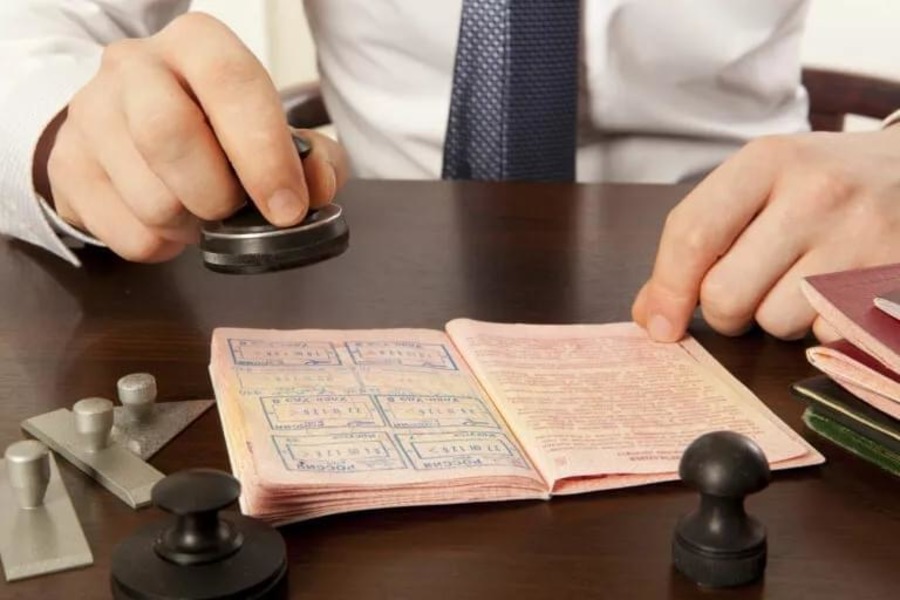A total of 5,800 third-country nationals obtained immigration permits under the fast-track immigration permit program and some of them were literally tourists, visiting Cyprus «sparsely and occasionally» instead of staying on the island as planned.
These are investors referred to by the Auditor General in a report in which he checked the «golden visas» as he describes them.
A case will be sent to MOKAS
An audit in 20 cases with sales documents related to real estate investments identified cases of properties whose sale was not completed by issuing title deeds for the benefit of the buyers, as well as cases of sales documents that were withdrawn. For one case, the Audit Office expressed its intention to forward a relevant complaint to the Police and the Unit for Combating Cover-Up Offences (MOKAS).
5% VAT for investors
The Auditor General’s report, which was prepared following a complaint and concerns the Civil Registry and Migration Department (CRMD), also mentions the following:
-We found cases of investments related to the purchase of houses with a reduced VAT rate of 5% by investors who do not reside permanently in the Republic but visit it for a few days every two years. Therefore, the requirement of the legislation that, in order to apply a reduced VAT rate, the residence should be used «as the main and permanent place of residence in the Republic» is not met.
Investment of €300,000 required
-The Program entered into force on 25.7.2012 and concerns the granting of immigration permits to third-country nationals who make an investment of at least €300,000 and who do not fall into the usual categories provided for the granting of an immigration permit (e.g. self-employment in agriculture, livestock, poultry, etc., employment in mining enterprises in the Republic and hold the right to prospect minerals, employees to an employer, etc.)
-Under the Program, immigration permits were granted to approximately 5,800 investors.
The EU has caught our ears
In a recommendation issued on 28.3.2022, the European Commission notes that investor residence schemes pose inherent security, money laundering, tax evasion and corruption risks for Member States and for the European Union (EU) as a whole. The recommendation was also included in the explanatory memorandum to a proposal for the new EU Corruption Directive.
According to the Auditor General, the most important findings that emerged from the audit are briefly mentioned below:
They do not cancel immigration permits
The CRMD does not check compliance with the provision of the Regulations for the cancellation of the immigration permit in cases where foreign investors acquire permanent residence in another country or stay outside the Republic for a period longer than two years which, based on the findings of the audit, residence outside the Republic is almost the norm.
The CRMD does not carry out any regular checks to verify compliance with the criteria after the granting of the immigration permit.
And permits before the criteria are approved
It was found that immigration permits were granted for investments that had been implemented before the introduction of these criteria.
CRMD granted immigration permits to 16 people upon presentation of proof of carrying out a single investment, without respecting the criterion of exclusive ownership of the legal entity that made the purchase.
Property not transferred
An audit in 20 cases with sales documents related to real estate investments identified cases of properties that were not completed by issuing title deeds for the benefit of buyers, as well as cases of sales documents that were withdrawn. For one case, it is the intention of the Audit Office to forward a relevant complaint to the Police and the Unit for Combating Cover-Up Offences (MOKAS).
They accepted unofficial documents
It was found that in some cases the CRMD accepted non-official proof of payment to substantiate the investments made.
In one case, CRMD granted an immigration permit to an applicant on the basis of a transfer from one Cypriot bank to another, without ascertaining whether the money came from abroad as provided by the criteria of the Program.
CRMD granted an immigration permit to an applicant upon presentation of proof of an investment made by a relative and not by him.
The Audit Office recommends to the Ministry of Interior to seriously consider the possibility of abolishing the Programme completely.
The Auditor General, citing the fact that the large number and severity of the findings in the sample we have randomly selected, considers that one can reasonably conclude the sloppy drafting and implementation of the Program in general and the inadequacy of the control mechanisms.

